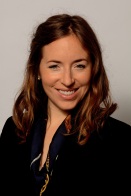Leadership is not about being the boss. It is about inspiring others to follow your direction. If you have direct supervisory experience, great! If not, think of situations where you influenced others without a position of authority. This can be an even more powerful example for a MBA applicant.
2. Tell us about your most meaningful leadership experience and what role you played. What did you learn about your own individual strengths and weaknesses through this experience?
It was midnight in Japan. My team was in the process of completing the improbable, reconfiguring our Western European accounting system, a task that had previously taken 6 years. However, we had advantages: I had assembled an all-star team, had built momentum in Eastern Europe, and had been given motivation. Our Chief Accounting Officer asked for this project to be finished in six weeks, which came as a surprise. I was scheduled to be in Kobe, Japan to train engineers and accountants on the processes I had designed over the last year. During the day, I trained my Japanese colleagues, and at night, I returned to the hotel to lead my team in the US and Europe.
When I joined the company, Eli Lilly & Co. had 44 affiliate countries disconnected from its central accounting system, Systems Applications Products (SAP). My task was to partner with each country’s leadership, implement SAP, and supervise the data migration of 35,000 Fixed Asset records. This position, especially my time in Japan, required me to perform at a mature level early in my career. I was the youngest member of a 200 person team and, moreover, the least-tenured process leader.
In this position, I learned how to lead subordinates and peers. This helped me discover a strength: caring for others. After a colleague realized that she had more work than time to complete the work, we met one-on-one. She quickly steered the conversation to what she needed to do and how long each task would take. I read in between her words and realized that she believed, if unsuccessful, her job would be in jeopardy. After having a discussion about what was truly expected of her, we developed a careful prioritization plan to complete the critical tasks and to ensure her success. I once viewed caring for others as a personality trait. After witnessing what people can achieve when they know you care about them, I now view it as my greatest strength.
I asked an experienced team member to help identify my weaknesses. He told me in some tough situations, like a mistake I made on a tax entry for the United Kingdom, my stress had affected my ability to lead. We agreed that if someone else had made the same mistake, I would have sprung into action, solving the issue and minimizing the damage. He could not understand why I would react differently to my own mistake. His honesty made me better.
Awareness of my strengths and weaknesses helped me lead my team from that hotel room in Kobe. Instead of allowing stress to slow me down, I organized the team before leaving for Japan, placed the European financial manager in charge during my absence, and scheduled daily virtual meetings to solve issues. The success of this project, completing the improbable in only six weeks, has served as an example for me of what I can accomplish as a leader by leveraging my strengths and mitigating my weaknesses.
